15 New Startups Join the Swedish AI Startup Landscape
This latest version of the initiative led by AI Sweden and Ignite Sweden now features 198 AI startups.
October 12, 2022The latest edition of Medtech Matchday gathered 150 representatives from startups, corporations, public sectors, and innovation hubs at GoCo Health Innovation City in Gothenburg.
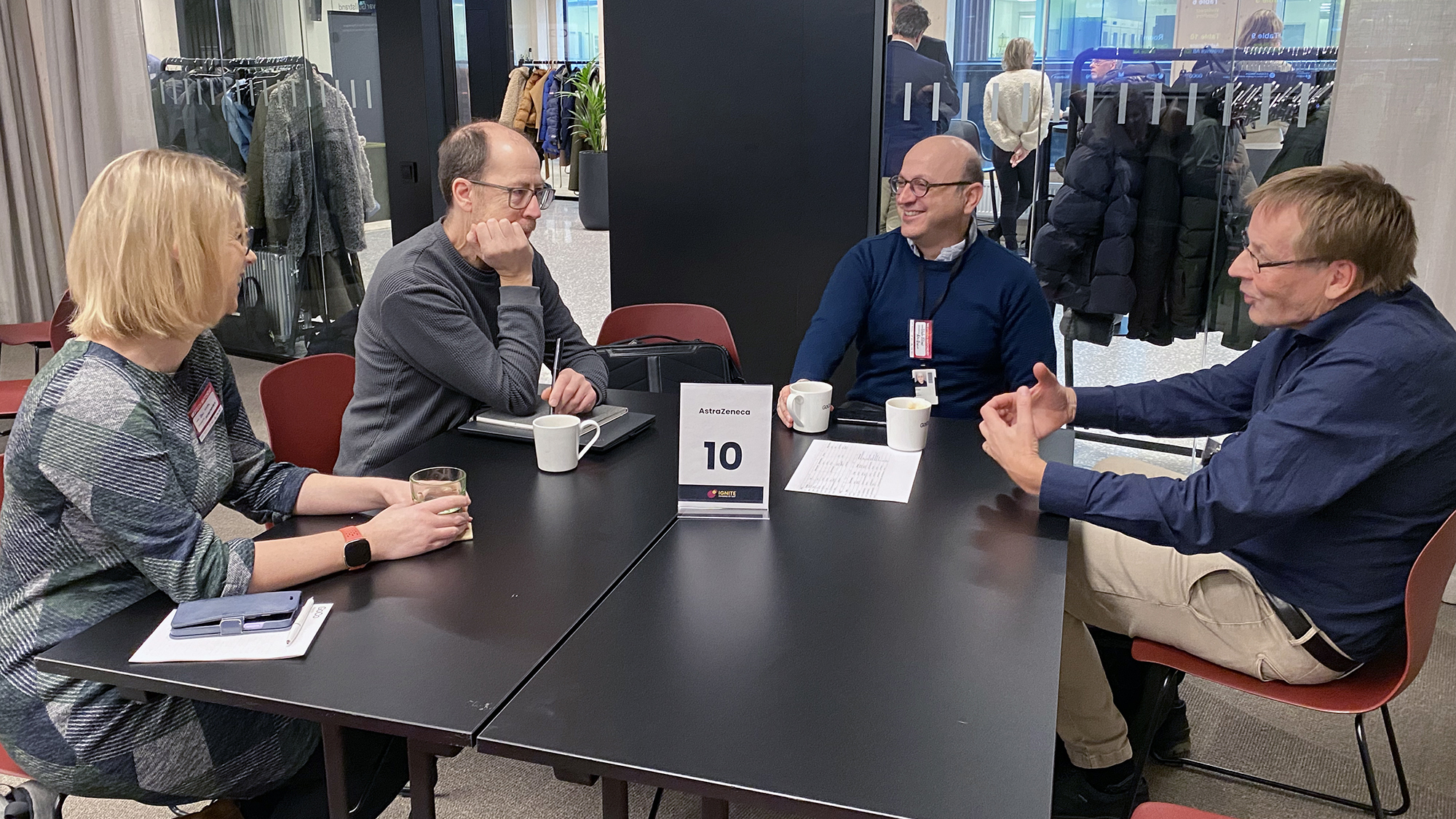
Focusing on pioneering solutions within the medtech sector, the fourth edition of Medtech Matchday aimed to foster connections, explore potential collaborations, and discuss the global scalability of medical technology.
“It is more important than ever to support the medtech sector if we want it to keep growing and accelerate in Sweden. One way of doing this is to matchmake the big industry players with small startups to find ways to deliver better products and solutions to the market, thus creating patient value,” says Lena Strömberg, Program Director at Medtech4Health, one of the main organizations behind the event.
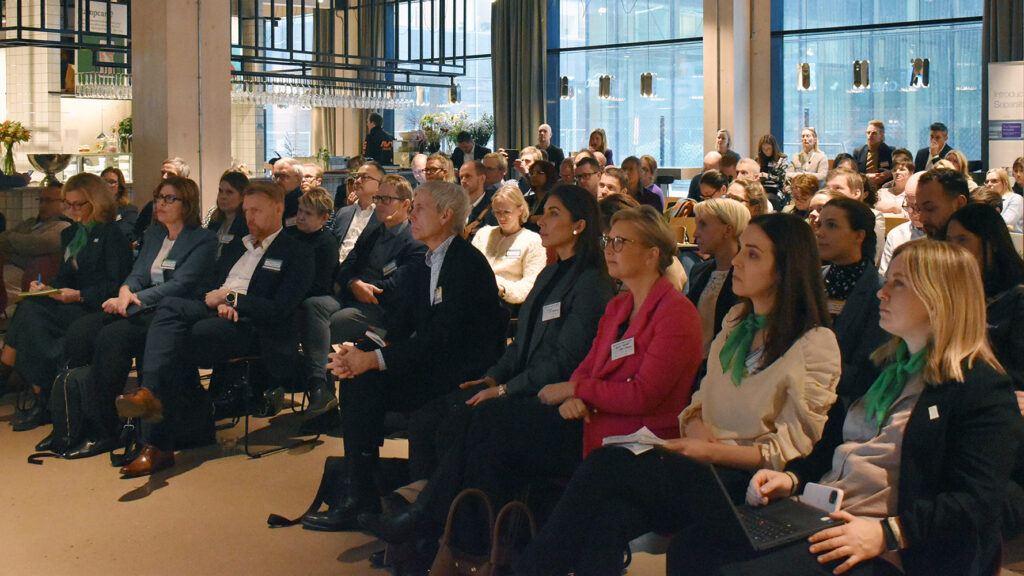
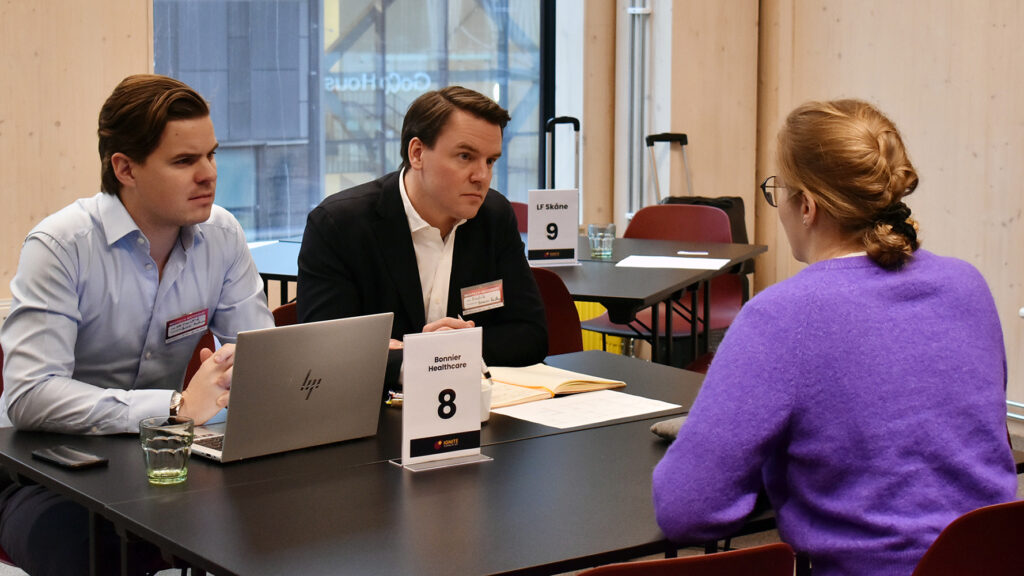
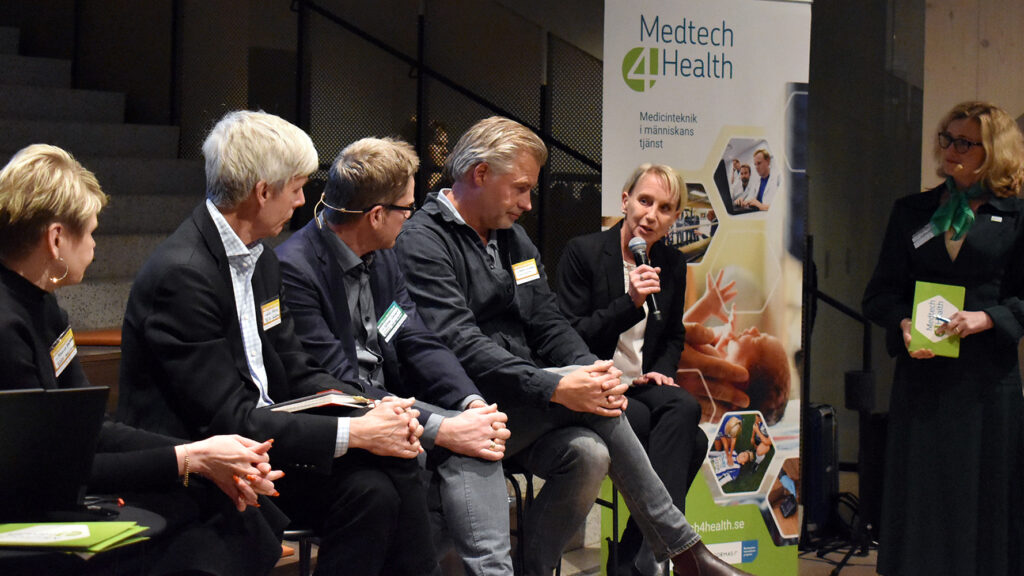
The event kicked off with a matchmaking session, during which nearly 60 tailored meetings took place between 11 industry leaders and public organizations, and 40 innovative medtech startups. The meetings have already resulted in 20 ongoing discussions and the signing of two NDAs.
“The Medtech Matchday aimed to bridge the gap between medtech startups and potential customers in both the public and private sectors. The objective of the meetings was to explore potential business collaboration opportunities. Each meeting underwent a curated process to ensure genuine business potential. I am delighted that our efforts have yielded such impressive outcomes in such a short timeframe,” says Shara Fägerwall Tawfik, Event & Partner Manager at Ignite Sweden and project leader for the matchmaking session.
Sting’s business coach, Olof Berglund, has been part of the organizing team for Medtech Matchday since its first edition in 2018.
“As an incubator, these events are extremely important because we really need to facilitate connections between our startups and large corporations or organizations like hospitals. Generally, it’s very difficult for startups to access the right person within these organizations,” says Olof.
Prior to these meetings, the team conducts interviews with all participating corporates to gain insight into their specific needs, objectives, and current challenges. This allows them to effectively match them with suitable startups.
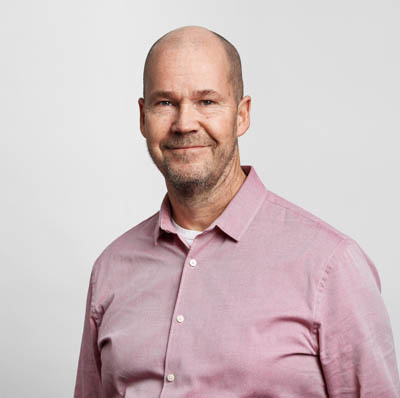
“It is a lot of work, but when it works, it really fosters collaboration between these two parties,” explains Olof.
Sting is one of the nine incubators that are part of ALIS, the Association of Life Science Incubators in Sweden, which actively collaborated in the matchmaking process. The other incubators are GU Ventures, KI Innovations, LEAD, Medeon, Sahlgrenska Science Park, SmiLe, Umeå Biotech Incubator, and Uppsala Innovation Centre.
“Through ALIS, we have a vast network of startups across Sweden in various fields such as pharma, medtech, diagnostics, and biotech. They have been instrumental in collaborating on this event. They have helped in both recruiting large corporations and organizations from their regions as well as in matching their needs with their regional networks of startups. As a result, we had excellent coverage from all over Sweden thanks to their networks,” says Olof.
The matchmaking session featured a lineup of industry leaders and public organizations, including Alfa Laval, Arjo, AstraZeneca, Bonnier Healthcare, Capio, Elekta, Johnson & Johnson, Karolinska University Hospital, Länsförsäkringar Skåne, Mölnlycke Health Care, and Wellspect HealthCare.
For the participating corporates, Medtech Matchday was a great opportunity to get in contact with startups developing groundbreaking technology.
Håkan Hagström, Front End Program Manager at Arjo, expressed the significance of nurturing partnerships with startups for his company.
“We are a relatively large company ourselves and we run our own agenda on the R&D side, but we also recognize that there are technologies and areas that we do not cover. So, we look a little bit sideways and see how new technologies can complement the more traditional technologies and solutions that we usually provide.”
It was the first time that the Swedish medical multinational participated in the Medtech Matchday.
“I think it is very important that the companies get to meet on this first informal basis without too much administrative burden regarding NDAs.”
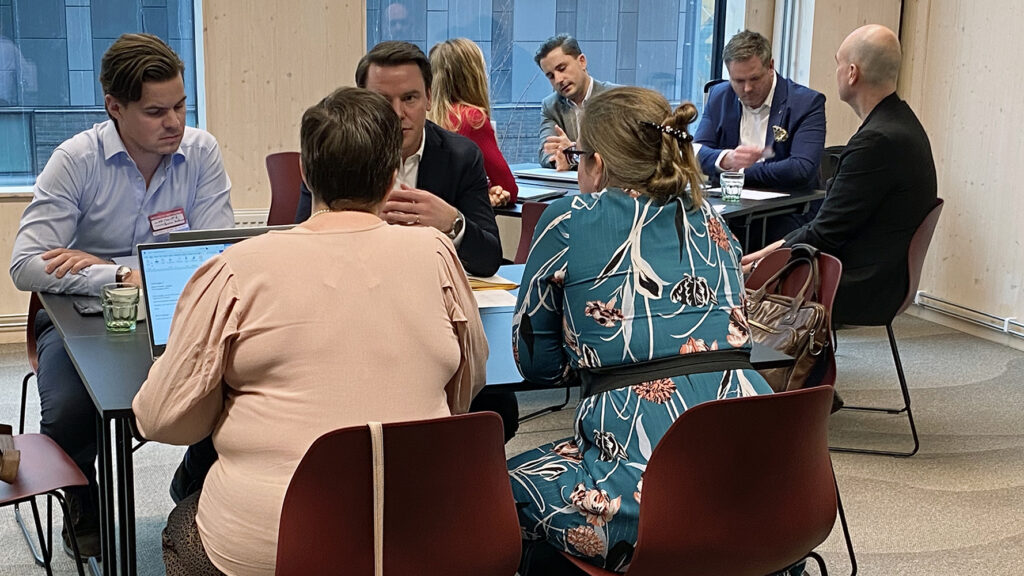
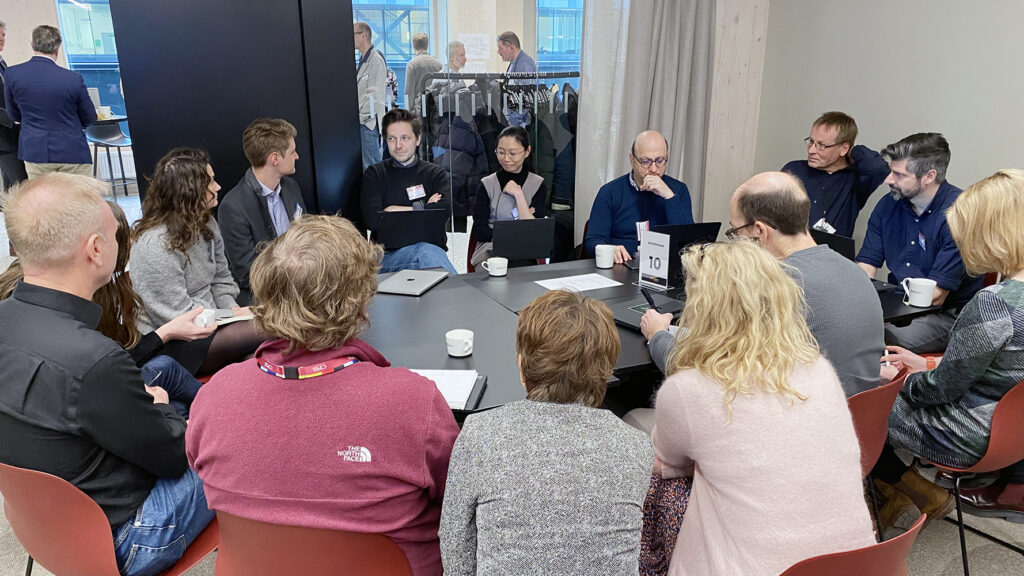
“At Karolinska University Hospital, we are thinking a lot about how to engage more with the innovation ecosystem and the startup community. We thought Medtech Matchday would be a really good opportunity to jumpstart the initiative I am engaged in called Solution Enabler Programs,” says first-timer Andreas Hager, Open Innovation System Facilitator at the world-recognized hospital.
He also explained that the university hospital’s focus is for obvious reasons primarily on the present moment, whereas startups offer a pathway to envisioning the long-term trajectory.
“Generally, when we at a frontline unit think about the future, it’s about tomorrow or even in the next 30 minutes. But now the leadership is asking: ‘We need to develop a way to think about the things we will be doing 3 or 5 years from now, who could be a speaking partner?’ And the startup community is already there, in the future. So talking to them can be a way for us to talk to the future!”
One of the startups participating in the event is Re:Lab, which provides the life science industry with a circular, closed-loop chemical recycling solution for laboratory waste plastics, converting them into new plastics within a closed loop.
“A startup needs clients to create value,” says its CEO, Flavio Ortigao. “The opportunity to meet corporates at events like Medtech Matchday is excellent. It was through these contacts that we have now developed our first clients. I had an excellent meeting today.”
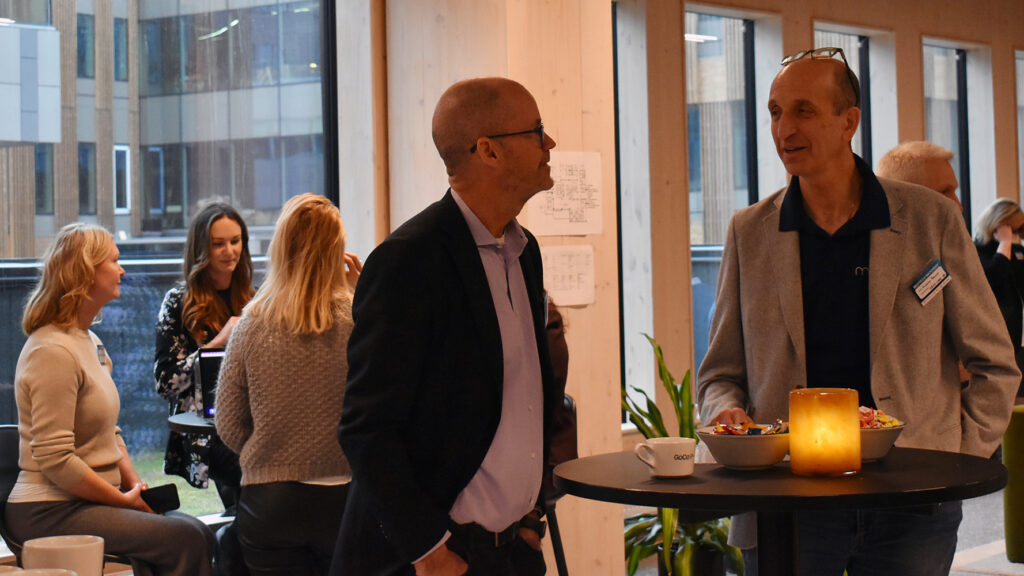
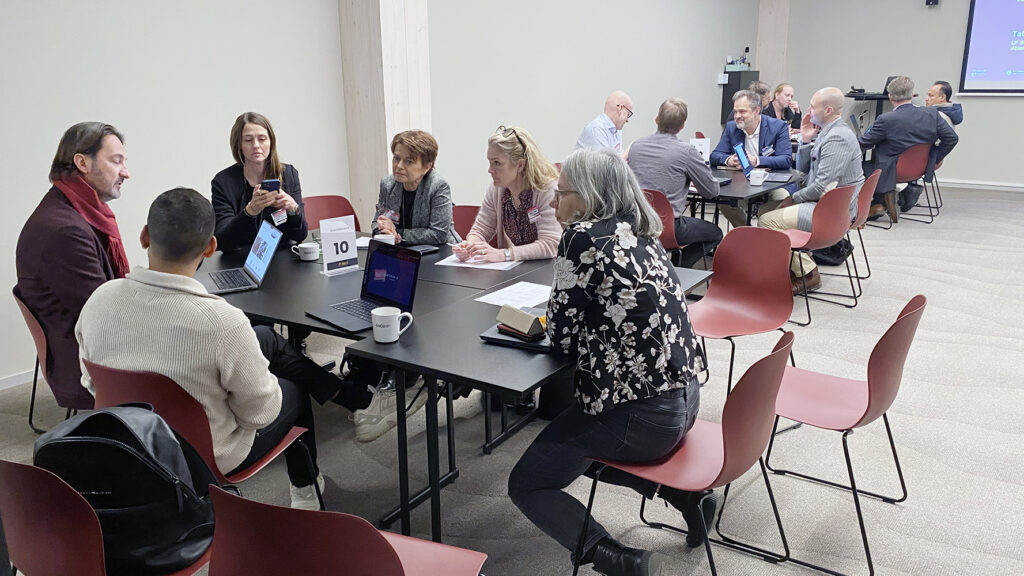
The face-to-face format of Medtech Matchday enhanced the connections between participants, adding value to the event. The in-person format also creates for startups avenues for networking and spontaneous conversations with companies they hadn’t been matched with.
“I only have one meeting booked, but I am also meeting people on the go here between the sessions, so I’m pretty pleased with that. I have already had one pretty good spontaneous meeting. We have actually contacted most of the other corporates who are here today and said that we will try to meet them in between meetings,” says Thomas Krotkiewski, CEO of 3ngage.
The Gothenburg-based startup enables manufacturers to create interactive digital twins of physical products. Medtech is a key area for 3ngage.
“When you are building a startup, you are doing something innovative and something people haven’t tried before. There is also an issue of trust, and it’s much easier to build that trust when you meet somebody in person. It only takes your mind seconds to figure out if the person knows what they are talking about, if they have something that is really good, or whether it is true or not. That is much easier to convey in the physical meetings,” he adds.
In the afternoon, the event transitioned into a dynamic conference featuring expert speakers from across Europe. Discussions explored governance in innovation and collaboration in bridging healthcare needs with medtech solutions.
The first session, moderated by Lena Strömberg from Medtech4Health, delved into the effective implementation of medtech innovations. David Lowe, Director of Health Innovation at the Scottish Health and Industry Partnership, opened the discussion, followed by a panel composed of Penilla Gunther (FOKUS Patient & Patient Safety Foundation, EU), Göran Henriks (Region Jönköping), Göran Larsson (Region Västerbotten), Fredrik Koffner (Cuviva), and Cecilia Edebo (Sahlgrenska Science Park). The session also included a live Innovation Hive segment that provided many valuable suggestions to enhance the implementation of innovative medical technology.
The main takeaways from this session were to think like an investor rather than an inventor, to focus on market validation and customer adaptation, and to involve all stakeholders as early as possible.
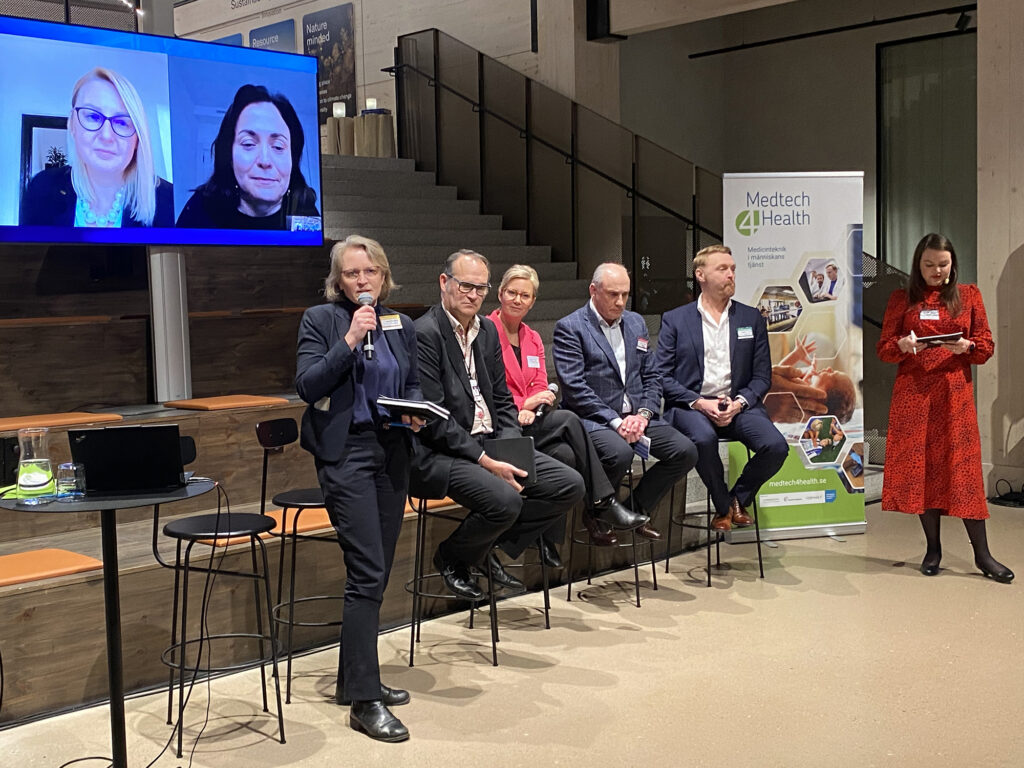
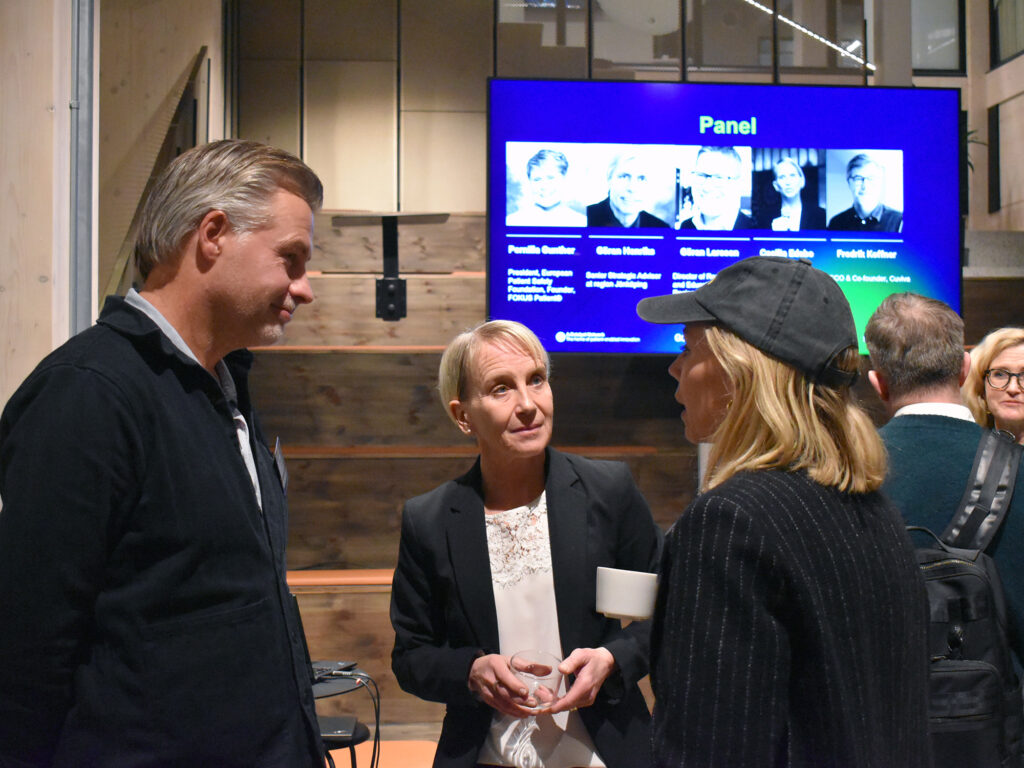
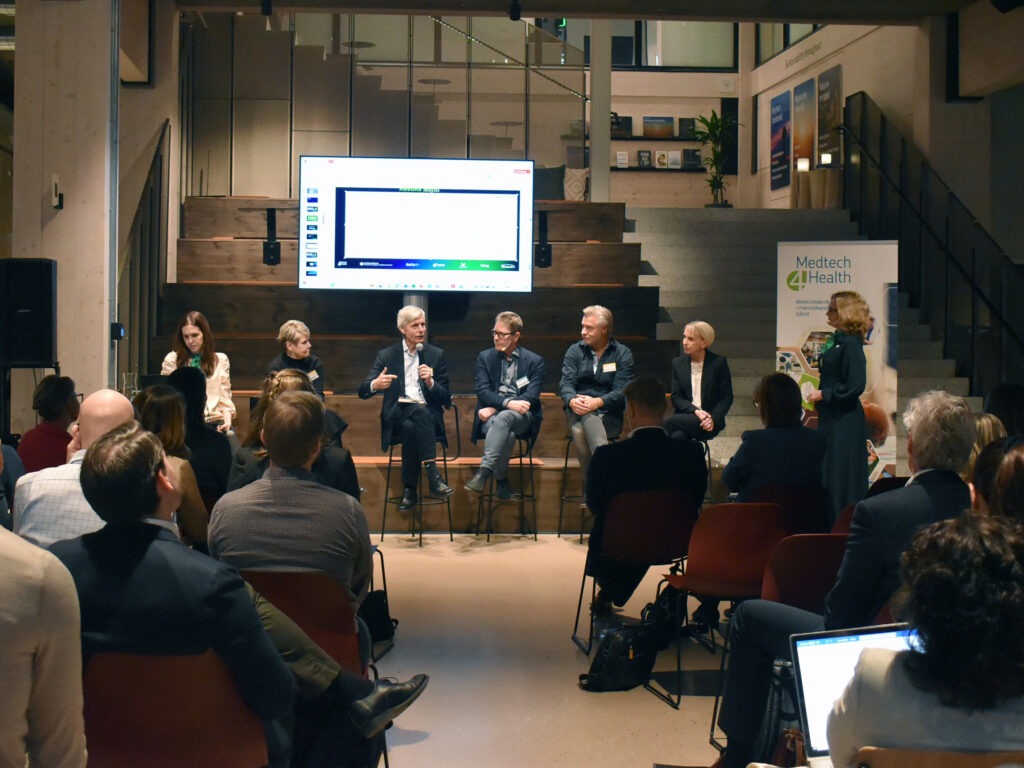
Magda Krakowiak, Director of EIT Health Accelerator, opened up the second session around what it takes to scale up as a medtech company. Britta Stenson from Business Sweden moderated a panel discussion featuring speakers such as Anna Bergstrand (Vinnova), Fredrik Wikell (Intuitive Surgical Sárl), Hanna Sjöström (NEOLA Medical), Ana Isabel Gonzalez (Madrid Health Authority, SERMAS Madrid), Magnus Björsne (Bio Venture Hub Gothenburg) and Antony Gemmell (Johnson & Johnson).
To foster more scaleups in the next five years, speakers emphasized the vital role of stronger partnerships to ensure growth and address unmet medical needs effectively. They also highlighted the need for a national life science strategy centered on profitability and internationalization, backed up by experts from academia and leading companies.
Additionally, there was a push for increased international showcasing of Sweden and its companies, alongside efforts to strengthen talent attraction and retention domestically. Furthermore, participants emphasized the importance of globalizing Swedish companies and the life science sector as a whole, coupled with sharper funding mechanisms that prioritize quality over quantity in project funding.
According to Lena Strömberg, a key insight from the event is the widespread interest among various stakeholders to collaborate in addressing sector challenges and a mutual sense of emergency.
“Everyone recognizes the problems but also sees opportunities. I’m really thrilled to hear all the enthusiasm and engagement to be part of the solutions and collaborate together to improve patient outcomes in the long run. I’m confident that everyone left the event with at least one new contact and insight, and hopefully, a heightened sense of a nurturing community,” says Lena.
The day culminated in a joint mingle hosted by Alfa Laval, providing valuable opportunities for attendees to connect.
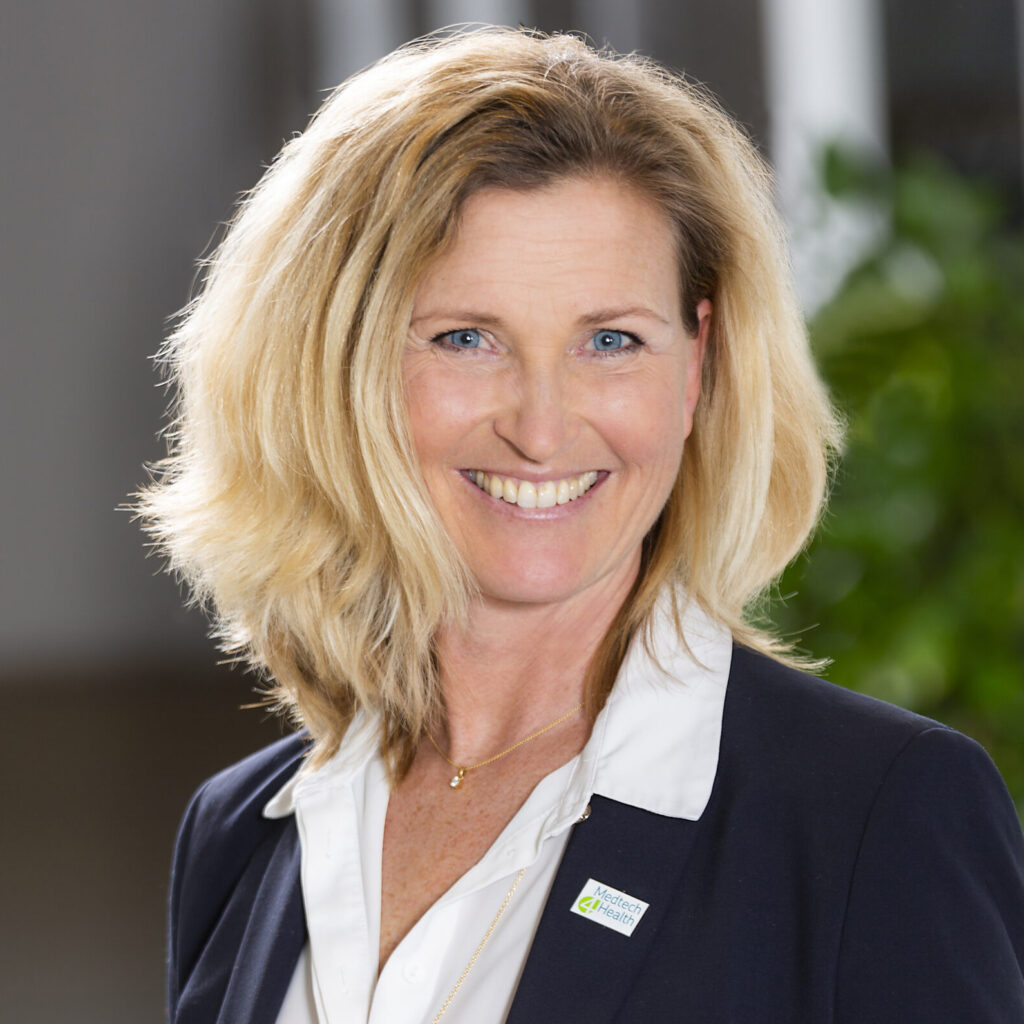
Medtech Matchday was jointly organized by Medtech4Health, AstraZeneca’s A.Catalyst Network, GoCo Health Innovation City, Ignite Sweden, SISP – Swedish Incubators & Science Parks, Sting, and Swedish Medtech. The event was possible thanks to the collaboration of these organizations: EIT Health Scandinavia, GU Ventures, KI Innovations, LEAD, Medeon Science Park & Incubator, Västra Götalandsregionen, Sahlgrenska Science Park, SmiLe Incubator, Umeå Biotech Incubator, and Uppsala Innovation Centre.
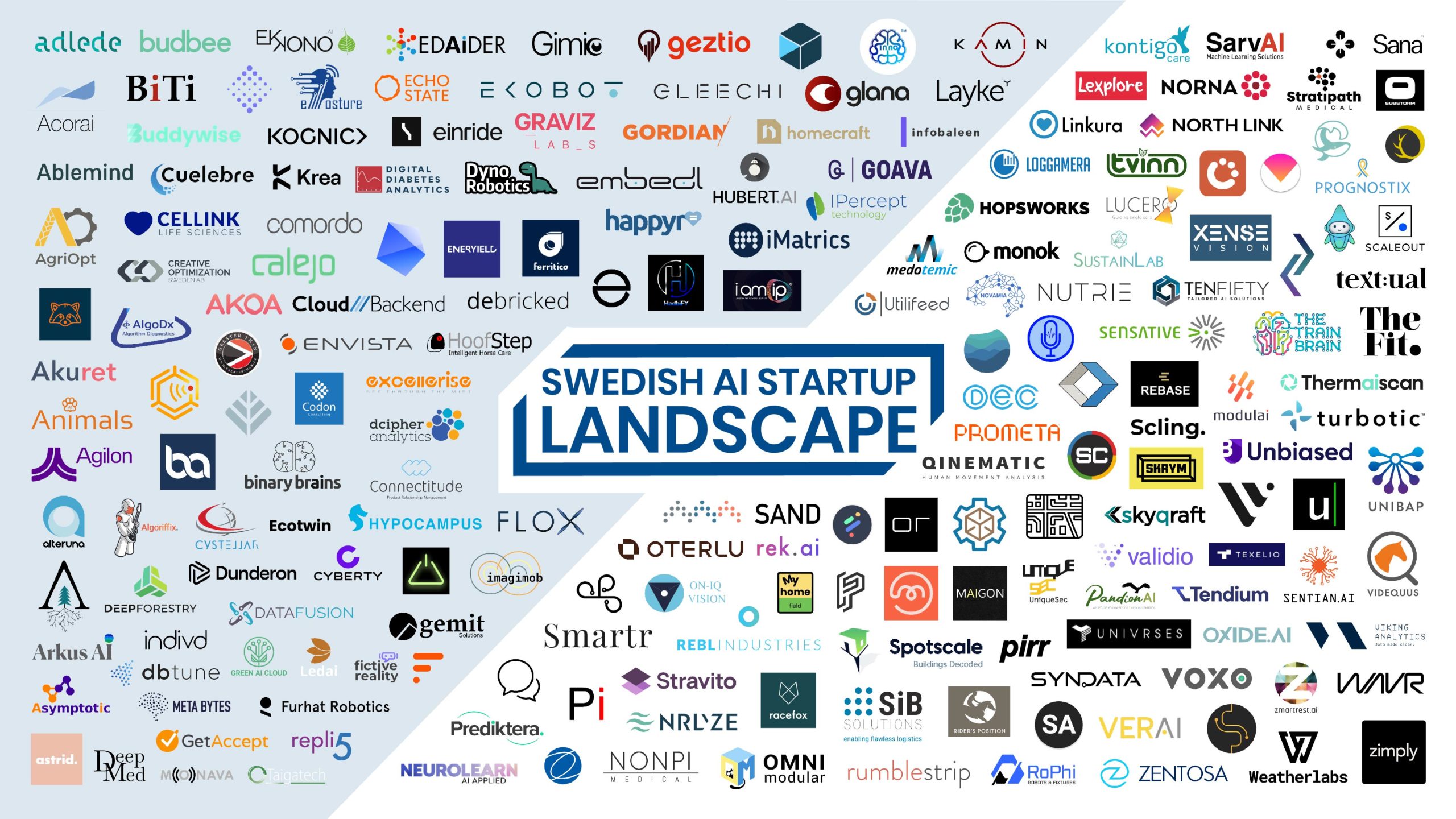
This latest version of the initiative led by AI Sweden and Ignite Sweden now features 198 AI startups.
October 12, 2022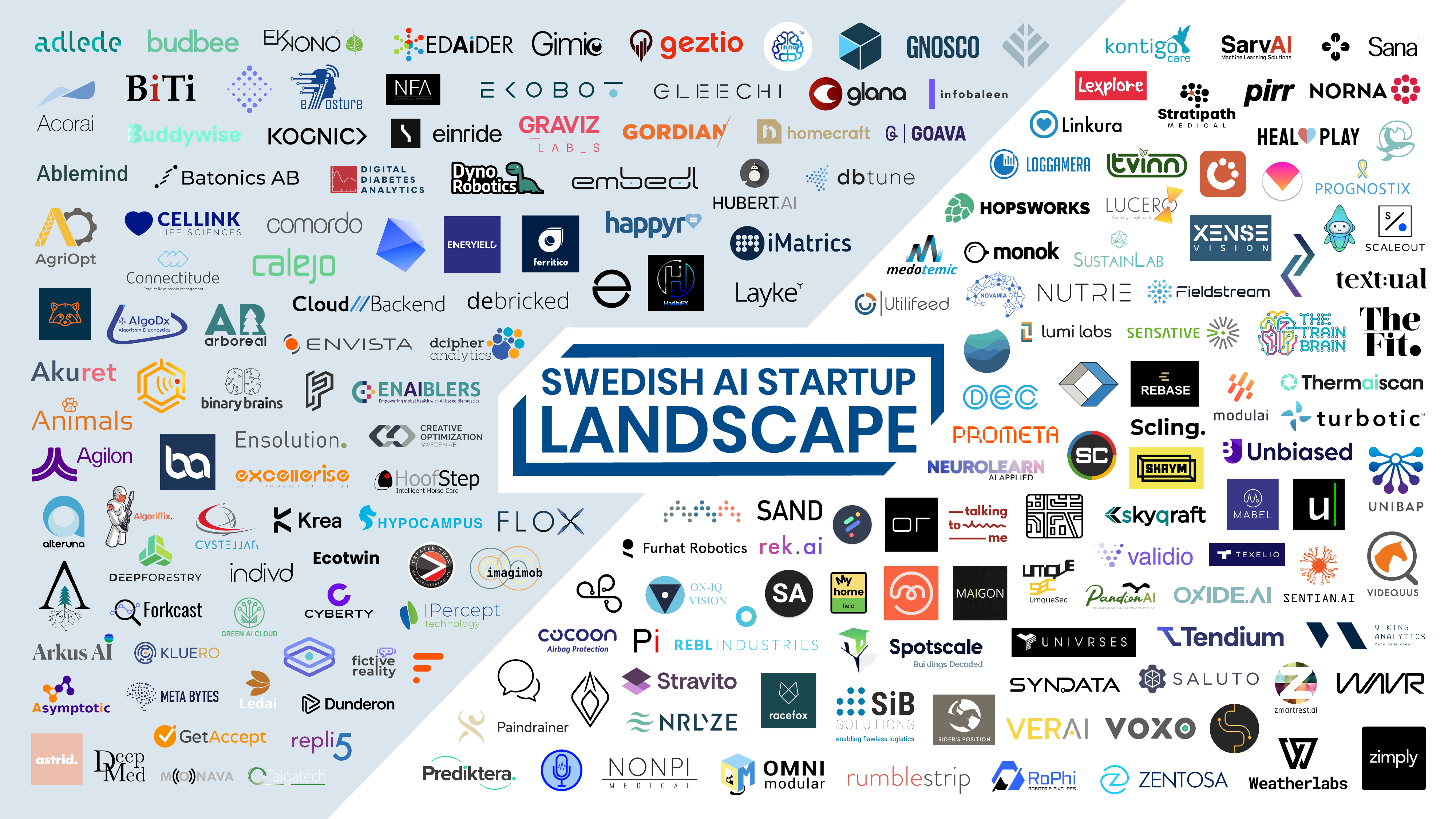
The latest update of initiative led by AI Sweden and Ignite Sweden showcases a total of 197 AI companies from across the country.
May 31, 2023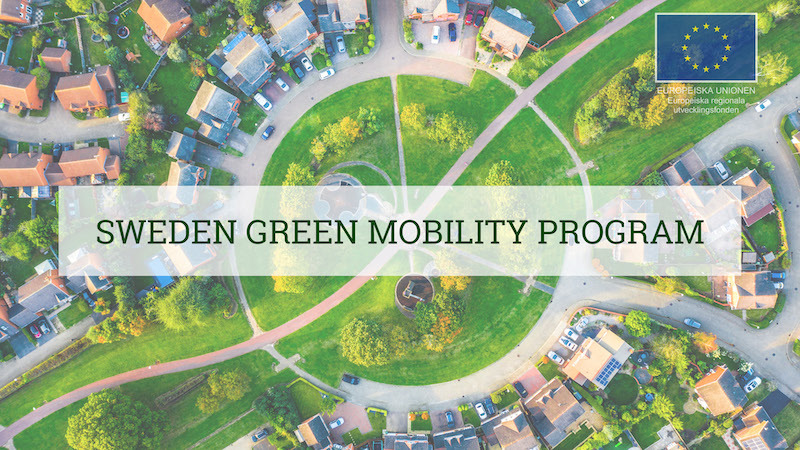
The participating startups and SMEs will help the city of Borlänge reduce the climate impact of commuting.
April 3, 2023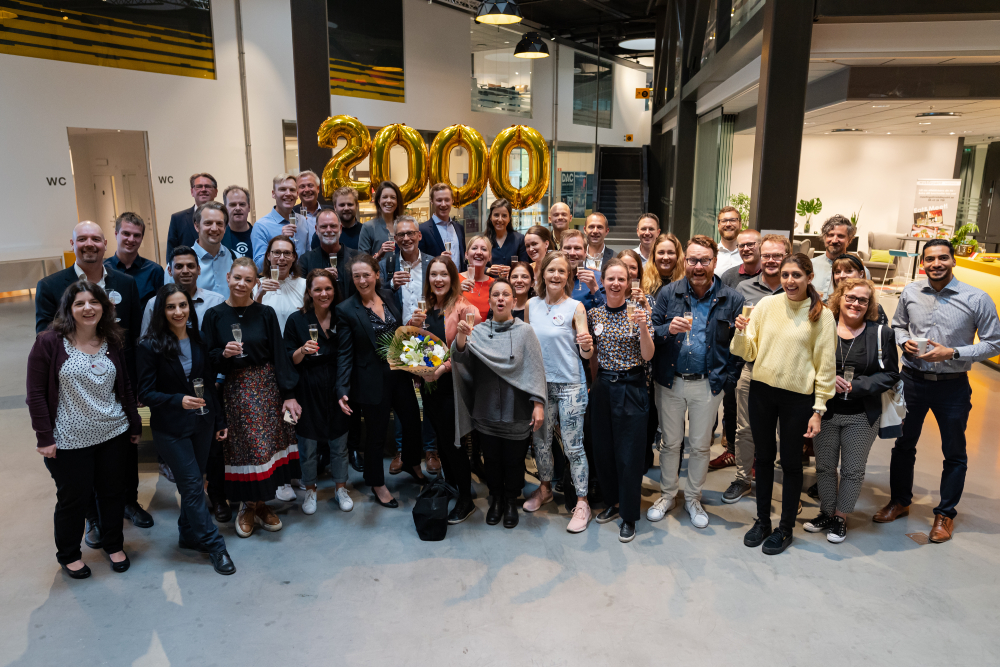
Ignite Sweden surpassed the milestone of 2000 tailored matchmaking meetings involving a total of 98 corporates and 342 startups since the program started in 2017.
July 1, 2019| Cookies that we use |
|---|
| close-cookie-bar |
| wants-ec-cookies |
| wants-fc-cookies |
| wants-mc-cookies |
| wants-ac-cookies |
| Cookies that we use |
|---|
| Cookies that we use |
|---|
| _gid |
| _ga |
| _ga_G3QPMYQ0S9 |
| Cookies that we use |
|---|
Sign in to our digital platform Ignite Magic to join our program, check out our upcoming matchdays, update your company profile, and access useful resources such as legal templates and other material to help you prepare for your meetings.
Click the boxes below to learn more about our offerings and how to get started.